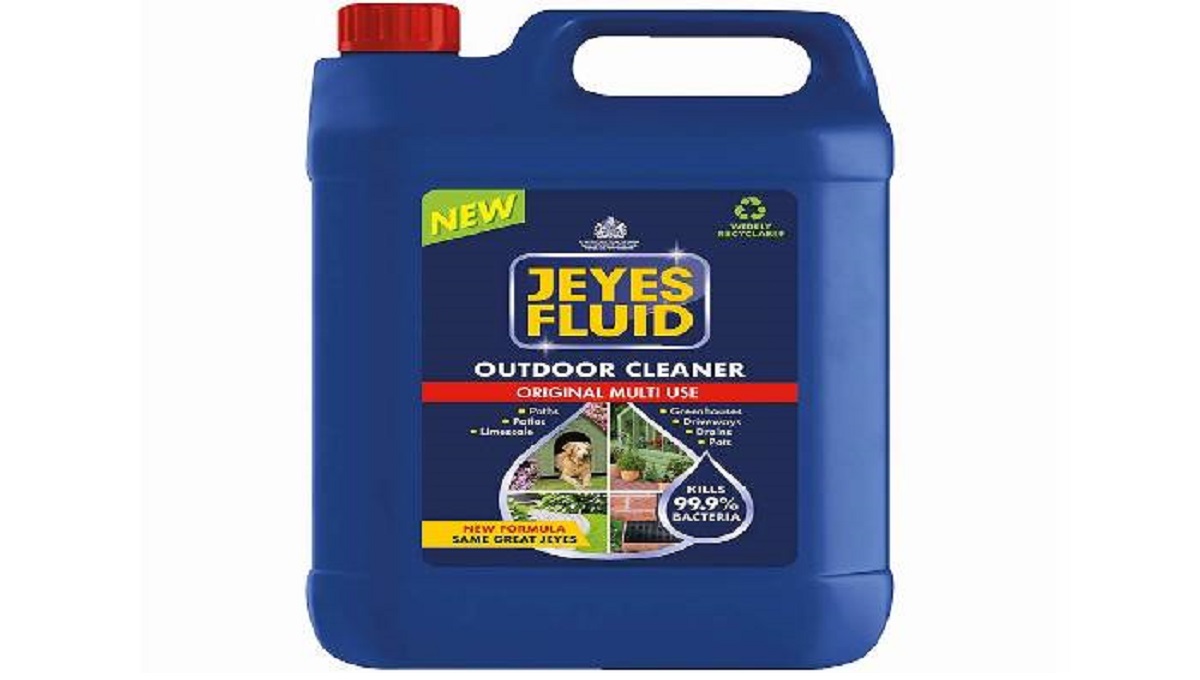Does Jeyes Fluid Hurt Dogs?
Jeyes Fluid can harm dogs if ingested or if it contacts their skin. Exposure to this chemical may lead to serious health issues for pets. Jeyes Fluid, a popular outdoor cleaner, often poses a risk to household pets, particularly dogs.
Owners use it for tasks such as disinfecting areas, but its chemical components can be toxic to animals. Responsible use necessitates preventing animals from accessing treated areas until they’re completely dry.
Symptoms of Jeyes Fluid poisoning in dogs include vomiting, diarrhea, and skin irritation. As dog safety is paramount, knowing the potential risks associated with household products is crucial.
Pet owners should always ensure that Jeyes Fluid, like any other chemical cleaner, is stored out of reach and used according to the manufacturer’s guidelines, to prevent accidental ingestion or contact.

What Is Jeyes Fluid?
Jeyes Fluid is a powerful outdoor cleaner with a long history. People have used it for over a century. It helps clean and kill germs in outdoor spaces.
A familiar sight in garden sheds, this dark liquid packs a punch in the fight against dirt and grime.
Composition
Understanding what’s inside Jeyes Fluid is key. It contains a mix of chemicals. These are designed to tackle tough outdoor jobs. Here’s a brief rundown:
- Tar Acids: These acids give Jeyes Fluid its germ-killing power.
- Alkyl Phenol: It helps break down greasy build-ups.
- Emulsifier: This makes the mixture work well with water.
These ingredients combine to make a cleaner that’s very effective. But we must use it carefully, especially around pets like dogs.
Common Uses
Jeyes Fluid has many uses around the garden and home. Here are some examples where it shines:
| Location | Uses |
|---|---|
| Garden Paths | Cleans and reduces moss growth. |
| Outdoor Furniture | Makes furniture look new by removing algae and dirt. |
| Drains | Helps clear foul-smelling blockages. |
Jeyes Fluid is also great for sanitizing areas after pets. But, it’s crucial to keep dogs away until it’s rinsed off and dried. It can be harmful if they ingest it.
Potential Dangers For Dogs
As pet owners, we cherish our furry friends and want to keep them safe. Jeyes Fluid, while effective for cleaning, poses significant risks to dogs.
Recognizing these dangers is crucial for protecting our four-legged companions.
Toxic Ingredients
Jeyes Fluid contains substances harmful to dogs. Its chemical makeup includes compounds that can be dangerous when ingested or even when in contact with skin or fur.
- Phenols: Highly toxic and corrosive.
- Cresols: Can cause chemical burns.
- Coal tar: May lead to poisoning.
Health Risks
Dogs exposed to Jeyes Fluid are at risk of serious health issues. Quick identification and treatment of these symptoms are vital.
| Symptom | Possible Condition |
|---|---|
| Vomiting | Chemical poisoning |
| Diarrhea | Intestinal distress |
| Drooling | Oral irritation |
| Lethargy | Toxic response or shock |
| Difficulty breathing | Respiratory compromise |
Dogs encountering Jeyes Fluid may experience skin irritation, leading to excessive scratching or licking. Ingesting even a small amount can lead to organ damage or failure.
Symptoms Of Jeyes Fluid Poisoning In Dogs
Keeping dogs safe is a pet owner’s top priority. However, certain products like Jeyes Fluid can pose a real threat if not used correctly. Accidental ingestion of Jeyes Fluid by dogs can lead to serious health issues.
It’s important to spot signs early. Early detection can save a dog’s life. Be aware of these symptoms, so you act fast.
Digestive Disturbances
Dogs may show clear signs of digestive distress if they ingest Jeyes Fluid. Watch for symptoms such as:
- Vomiting: Dogs may throw up soon after ingestion.
- Diarrhea: Look for loose or watery stools.
- Lack of Appetite: Dogs may refuse meals.
- Abdominal Pain: A dog may whimper or resist touch.
Respiratory Issues
Respiratory problems can also signal Jeyes Fluid poisoning:
- Difficulty Breathing: Rapid or labored breaths are a bad sign.
- Coughing: Persistent cough may develop.
- Nasal Discharge: Look for unusual mucus from the nose.
- Wheezing Sounds: Listen for abnormal breathing noises.
Skin Irritation
Contact with skin may cause irritation. Symptoms include:
| Part of Body | Type of Irritation |
|---|---|
| Paws | Redness, swelling or burns |
| Body | Rashes or itchy spots |
| Face | Swelling, especially around the mouth |
If you suspect your dog is showing any of these signs, seek immediate veterinary care. Fast action is crucial to recovery.
Treatment And Prevention
Treating and preventing harm from Jeyes Fluid in dogs is crucial. Dogs often explore with their noses and mouths, leading to accidental exposure.
Quick action can save your pet from serious health issues.
Emergency Measures
If your dog ingests or comes into contact with Jeyes Fluid, act immediately. Here’s a step-by-step guide:
- Do not induce vomiting unless directed by a professional.
- Check your dog’s mouth. Remove any residue gently.
- Rinse affected skin or fur with water.
- Call your vet or a pet poison helpline right away.
Veterinary Care
Upon reaching the vet, treatment may involve:
- Examination to determine Jeyes Fluid’s effect.
- Medication to alleviate symptoms and prevent absorption.
- IV fluids to protect the kidneys and help flush the toxin.
- Monitoring for signs of poisoning and secondary complications.
Preventing Exposure
Prevention is the best strategy:
| Strategy | Details |
|---|---|
| Preventing Exposure | Keep Jeyes Fluid locked away. |
| Supervision | Watch your dog during outdoor activities. |
| Alternatives | Use pet-friendly cleaning produ |
Conclusion
Summing up, it’s clear that Jeyes Fluid poses risks to canine friends. Keep your pets safe by using alternatives or thoroughly rinsing treated areas.
Always consult a vet if exposure occurs. Remember, prevention is better than a cure when it comes to pet health.
Frequently Asked Questions
Is Diluted Jeyes Fluid Harmful To Dogs?
Diluted Jeyes Fluid can be harmful to dogs if ingested or if it comes into contact with their skin. Always use it safely and keep pets away from treated areas until dry.
Is Diluted Jeyes Fluid Harmful?
Diluted Jeyes Fluid, when used according to instructions, is generally safe. Misuse or overexposure can be harmful to humans, pets, and plants. Always follow the product’s safety guidelines.
How Do You Use Jeyes Fluid For Dog Urine?
Dilute Jeyes Fluid as directed on the label. Apply the solution to areas affected by dog urine. Rinse thoroughly after application to ensure pet safety. Use regularly to prevent urine odors from lingering. Always follow the product’s safety guidelines.
What Disinfectant Is Pet Friendly?
Hydrogen peroxide-based or diluted bleach solutions are commonly used pet-friendly disinfectants. Always follow label instructions for safe use around animals.
Is Jeyes Fluid Safe For Use Around Dogs?
Jeyes Fluid contains chemicals that can be toxic to dogs, so it’s essential to ensure the area is completely dry before letting your dog near it.


